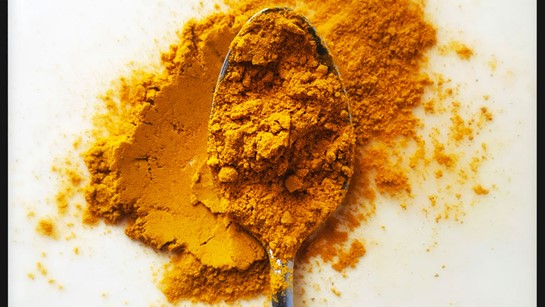Is Turmeric Actually Beneficial?
9 Aug 2019
Scientific exploration has revealed one of the most significant discoveries supporting the power of food as medicine. This food-based medicine is turmeric (botanically called curcuma longa L.). At first, volumes of evidence exposed the anti-cancer effects of its flavonoids, specifically the phytochemical curcuminoids. As Dr. Russell Blaylock, M.D. states, "There is a multi-level anti-cancer process that occurs affecting the growth of cells from the use of this eastern delicacy. Additionally, it strengthens the immune system, lowers blood sugar and acts as a powerful anti-inflammatory due to its potent COX-2 enzyme inhibitor effect." Most researchers advocate that we need between 1000 and 3000 milligrams daily of this fragrant yellow "spice." Since it would be difficult to consume this level in the condiment form, it is generally suggested that we consume it as a supplement. It is also known to be helpful to take this supplement with oil rich cuisine such as sprouts, algaes, and/or condiment oils. Many researchers believe that tumeric interaction with magnesium adds to its effectiveness. Consuming foods rich in magnesium or taking a bioavailable liquid magnesium supplement can multiply its benefit.
Neuroscience has studied the Indian culture for evidence of turmeric's health benefits and has discovered that there is very little Alzheimer's among their aging population (Indians have traditionally used turmeric in much of their food.) Since becoming aware of this connection, scientists have conducted significant studies on the effects that curcuminoids have on the brain. The University of California reported that curcumin is most effective in inhibiting the formation of the protein fragments that directly produce Alzheimer's. All other drugs being tested for Alzheimer's were less effective than this food. After further study, they found that the low molecular weight and polar structure of curcumin allowed it to penetrate the blood-brain barrier and bind to the beta anyloid (which form the disease causing plaque). In an earlier study, the same team found that the curcuminoids contain powerful antioxidant and anti-inflammatory properties, which are believed to ease Alzheimer's symptoms and arthritis.
Ayurvedic medicine, some five thousand years ago, began using this food/spice for anti inflammatory purposes. Traditionally, there are some people who should avoid the excessive use of turmeric: pregnant women (as it can activate uterine contractions); people on anti-coagulant medications including aspirin (since curcumin naturally acts as an anticoagulant; and people who suffer from gallstones. After delivery, or once these other health problems are resolved, turmeric can and should be utilized. Other than these counter-indications, there are no known side effects from excessive consumption.
In our quest to bring you the latest findings on natural living, we advise anyone with a tumor, arthritis, rheumatism, or memory loss concern to add this food and its supplemental counterpart to your daily dietary routines.
Some additional research involving curcumin:
Effect of selected phytochemicals and apple extracts on NF-kappaB activation in human breast cancer MCF-7 cells. Yoon H, Liu RH. J Agric Food Chem. 2007 Apr 18;55(8):3167-73. Key Finding: “These results suggest that apple extracts and curcumin have the capabilities of inhibiting TNF-alpha-induced NF-kappaB activation of MCF-7 cells by inhibiting the proteasomal activities instead of IkappaB kinase activation.”
Curcumin and genistein, plant natural products, show synergistic inhibitory effects on the growth of human breast cancer MCF-7 cells induced by estrogenic pesticides. Verma SP, Salamone E, Goldin B. Biochem Biophys Res Commun. 1997 Apr 28;233(3):692-6. Key Finding: “When curcumin and genistein were added together to MCF-7 cells, a synergistic effect resulting in a total inhibition of the induction of MCF-7 cells by the highly estrogenic activity of endosulfane/chlordane/DDT mixtures was noted. The inclusion of turmeric and soybeans in the diet to prevent hormone related cancers deserves consideration.”
Oxidative stress and Alzheimer’s disease: dietary polyphenols as potential therapeutic agents. Darvesh AS, Carroll RT, Bishayee A, Geldenhuys WJ, Van der Schyf CJ. Expert Rev Neurother. 2010 May;10(5):729-45. Key Finding: Oxidative stress has been strongly implicated in the pathophysiology of neurodegenerative disorders such as Alzheimer’s. This article reviews the antioxidant potential of polyphenol compounds such as anthocyanin from berries, catechins and theaflavins from tea, curcumin from turmeric and resveratrol from grapes.
Targeting inflammation-induced obesity and metabolic diseases by curcumin and other nutraceuticals. Aggarwal BB. Annu Rev Nutr. 2010 Aug 21;30:173-99. Key Finding: “Curcumin-induced alterations reverse insulin resistance, hyperglycemia, hyperlipidemia and other symptoms linked to obesity. Other structurally homologous nutraceuticals, derived from red chili, cinnamon, cloves, black pepper and ginger, also exhibit effects against obesity and insulin resistance.”
